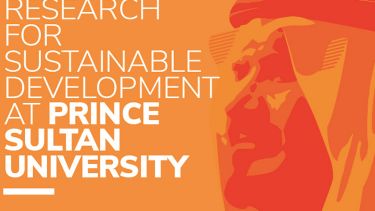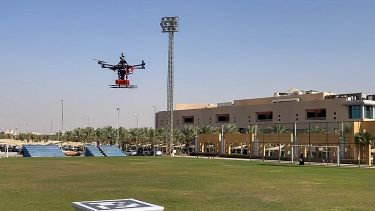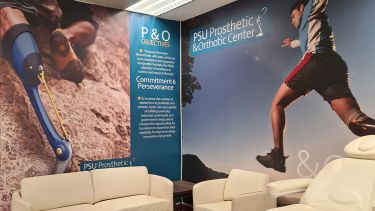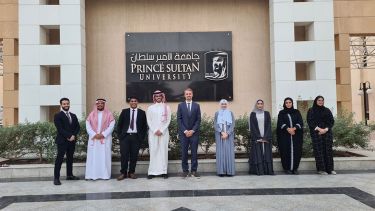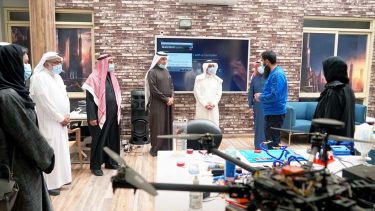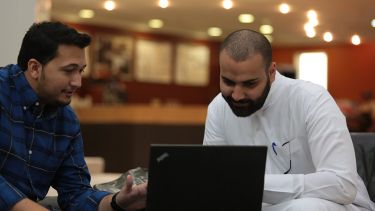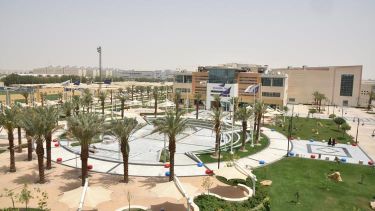Having recently been awarded AACSB accounting accreditation, Prince Sultan University is enjoying the rewards of a familial campus experience and industry-driven curricula
Prince Sultan University (PSU) in Riyadh, Saudi Arabia, has become the second private higher education institution outside the US to receive accounting accreditation from the AACSB. There are lessons to take from this remarkable achievement.
Founded in 1998, PSU is a fascinating case study in how a small institution can punch above its weight by establishing a strong collegiate culture and pursuing strategic goals of internationalisation and graduate employability. Key to these aspirations is accreditation, and PSU has used criteria such as the AACSB’s to inform its teaching and learning.
“From day one, the management, all of the people at the institution made it their creed to follow excellence in higher education,” says Saad Almosa, dean of the College of Business Administration. “When the matter of accreditation was introduced, we created a partnership with the Education and Training Evaluation Commission and the National Commission for Academic Assessment and Accreditation. We managed to get the local accreditation within 10 years of establishing the institution.”
In doing so, PSU positioned itself alongside older and more established institutions such as King Saud University and King Abdulaziz University. PSU’s decision to teach in English was made with internationalisation in mind. Its faculty comprises high-calibre educators from more than 30 countries, with a similarly diverse student cohort.
PSU’s size allows it to remain agile. Drawing on the power of its alumni and links with business, both locally and internationally, PSU’s curricula are tailored to address the demands of the modern workplace. It enjoys a 100 per cent graduate employability rate, with many of its graduates occupying high-profile leadership roles, which Almosa believes is a testament to PSU’s close relationships with the business community.
“We have a board of trustees; more than half of its representatives come from businesses, from banks and industry,” Almosa says. “Every college, every programme has its own advisory boards, and we hold regular meetings with alumni. Annually, we take their feedback to improve our curricula and student learning experiences.”
Mohammad Nurunnabi, chair of the accounting department, credits the foresight of PSU’s management with establishing the strategy and building the support structure to execute it. This, he believes, has helped create a family culture in the accounting department that allows the university to flourish.
“[The accreditation] only happened because of the collegiate culture and, most importantly, the accounting family,” says Nurunnabi. “We never say the accounting faculty; we have created a family culture. This is our strength. We work as a family. Our students are part of the family. Our alumni are part of the family. This is a very different environment. We celebrate people’s anniversaries, birthdays. We organise our regular meeting in the coffee shop outside the university. This is how we create the family culture.”
Synonymous with the highest standards of quality, AACSB accreditation inspires new ways of thinking within business education globally. As a result, less than six per cent of schools offering business degree programmes hold AACSB business accreditation. Through today’s ratification, a total of 926 institutions across 60 countries and territories have earned AACSB accreditation in business. A further, 189 institutions maintain supplemental AACSB accounting accreditation for their accounting programmes.
The Department of Accounting at PSU also has earned accreditations from six world-leading international professional bodies: ACCA, AIA, ICAEW, CIMA, CIPFA and IMA. With 100 per cent employment within six months of graduation, 60 percent of the graduates are employed by the Big Four accounting firms. In alignment with Saudi Vision 2030, PSU supports and promotes higher standards within Saudi Arabia’s accountancy profession. The university delivers market-driven curricula and offer six certifications in addition to a degree like IPSAS, IFRS, cyber security, IA, data analytics and taxation,” Nurunnabi says.
The culture might be constant, but with technology disrupting the accounting profession, Nurunnabi says the curricula will continue to evolve accordingly, with a focus on AI, data analytics and other novel accounting paradigms established by the sector’s digitalisation.
Find out more about accounting at PSU.
Find out more about AACSB accounting accreditation at PSU.

